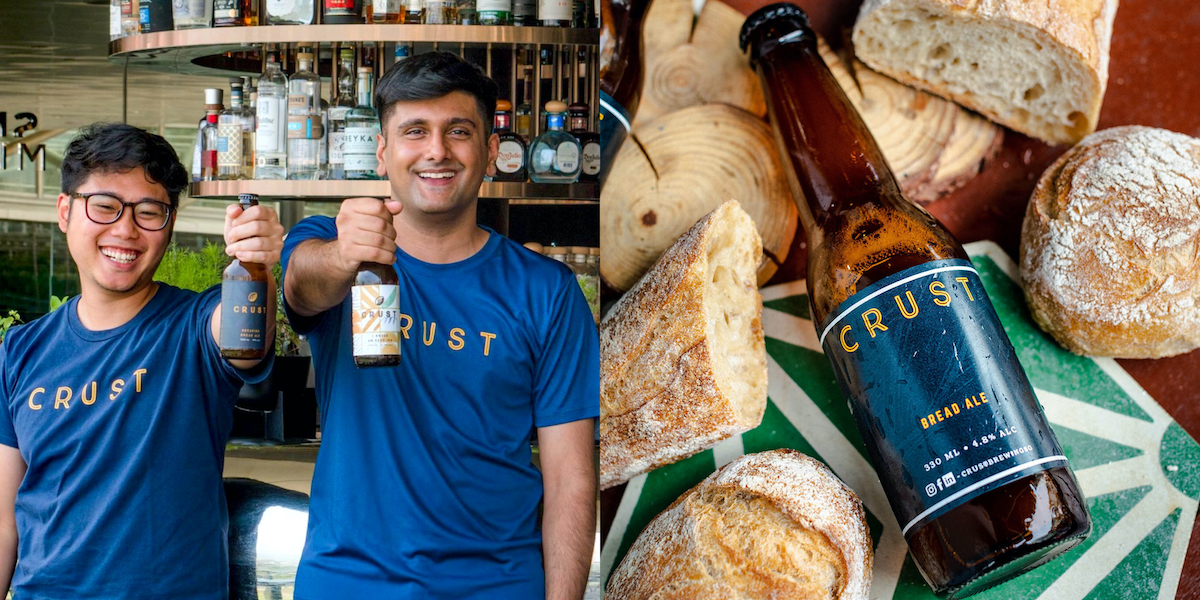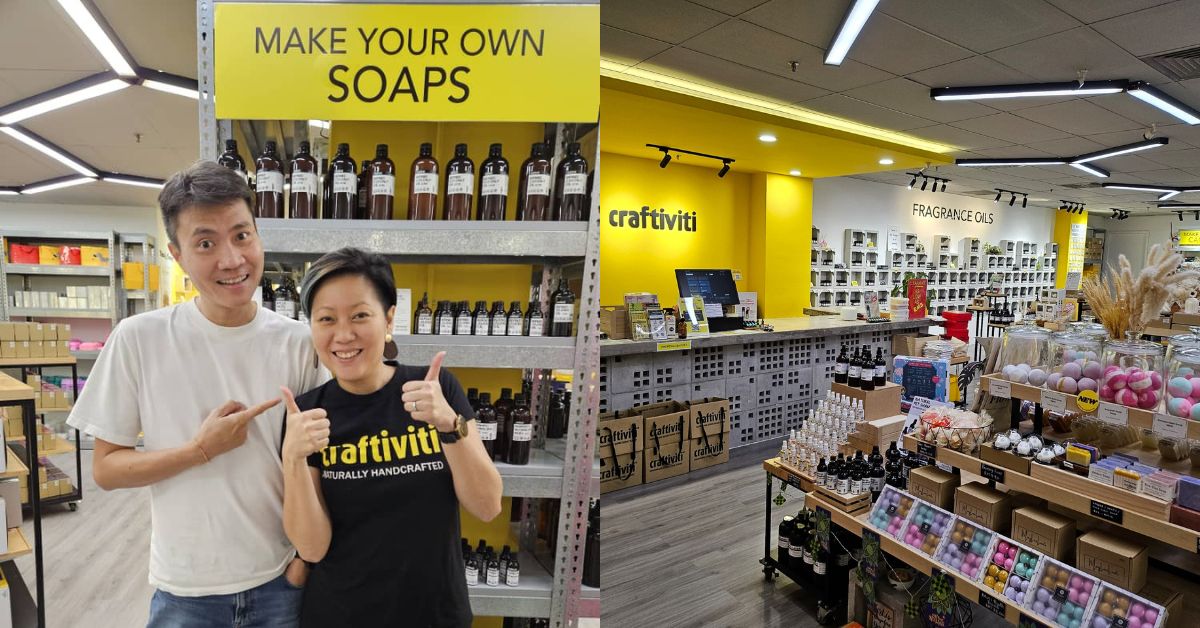Co-founder and CEO of CRUST, Travin Singh, 29, realised that the preservation of bread is the oldest form of making beer whilst researching on the origins of the beverage.
“Bread is one of the main ingredients people waste worldwide,” Travin said in an interview with Vulcan Post.
In Singapore, it is common for bakeries and restaurants to throw out unsold bread at the end of each day.
Travin put two and two together, and decided to turn these unused and unsold bread into beer.
Saving The Earth One Loaf At A Time
Travin started off as a home-brewer, who learnt the art of brewing through YouTube.
After four attempts, he successfully created his own bread beer recipe and founded CRUST in 2019. Now that he no longer brews at home, the brewing for CRUST is done at On Tap.

The CRUST team uses bread to substitute barley and malt, and sugars from the bread are extracted to produce the alcohol.
Each week, surplus ingredient partners such as RedMart and other bakeries are informed of how many kilograms of bread is needed by CRUST. The team then collects the bread to use in the brewing process.
The beer then has to ferment for about two weeks, before it is bottled and packaged for distribution.
To date, the company has saved 275kg of bread and produced 4,482 litres of beer, with a mission to reduce 1 per cent of global food waste by 2030.
Bringing Home The Dough

The startup currently has two flagship products: Breaking Bread Ale and I Knead An IPA.
They also create white-labelled products for merchants under their respective brands.
It has collaborated with Edible Garden City, Tiong Bahru Bakery, The 1925 Brewing Co and Shilin Night Market to produce The King’s IPA, Beerguette, Kaya Toast Stout and Mango respectively.
Its brews are stocked in bars, cafes and retail stores islandwide. Stockists include popular rooftop bar Smoke & Mirrors, local creative marketplace Naiise, and RedMart.
To incentivise restaurants, bars and supermarkets to minimise their own wastage, CRUST collaborates with their merchants to collect their unsold bread.
Due to the Covid-19 pandemic however, CRUST had to completely pivot its business model from business-to-business (B2B) to delivery-to-consumer (D2C).
It created its own delivery service and built a web store so consumers can get their brew fix directly.
Travin reasoned that hotels were closed for business during the circuit breaker and are still not fully operational now, despite the economy reopening progressively.
During this downtime, the startup managed to spend a lot of time to conduct research and development (R&D) on different types of products and looking at new markets.
Say No To Food Waste
More than just brewing beer, CRUST is a R&D startup which looks for solutions to solve food waste. The main reason behind the founding of CRUST was to create a value-based company that could create solutions to real-world problems like food wastage and sustainability.

Throughout the interview with Vulcan Post, Travin reiterates that CRUST is not just a beer company.
“As long as there is food waste in the world, we will always find a way to build a solution around it,” he said.
“It just so happened that our first product was beer. But we don’t just focus on beer anymore and we are looking at other products.”
Besides its bread beer, CRUST has also produced plant-based beer and is planning to incorporate rice and fruit peel into its future brews.
Non-alcoholic drinks are also on the agenda, and the startup’s carbonated teas will be rolled out in FairPrice Finest soon.
What’s Next?

Since it’s founding, CRUST has been bootstrapped and the founders have been actively looking for investments to build a “full-fledged team”.
Currently, the CRUST team is five-men strong, with three full-timers and two interns.
The team is also on a lookout for other surplus ingredients to innovate on, and are in talks with Food Bank to come up with a collaboration.
Looking away from the region, it has big plans to enter a new market “once every six months or so”. When asked if the Covid-19 pandemic and global recession would thwart these plans, Travin remained optimistic.
During the Covid-19 period, the CRUST team was still able to meet with people from all over the world online, which “made life easier” when it comes to market entry.
As a food-tech company, CRUST is also looking to create a marketplace app in the near future, connecting F&B outlets with one another to minimise food loss.
Besides running CRUST, Travin is also a financial consultant by day. He mused that he probably has not met his friends “in a year”. When the company is “more stable”, he hopes to be able to meet his friends “without worrying about work”.
At the end of the day, Travin is passionate about beer and minimising food waste, so it is work that he is “more than happy to put in”.
Featured Image Credit: CRUST








